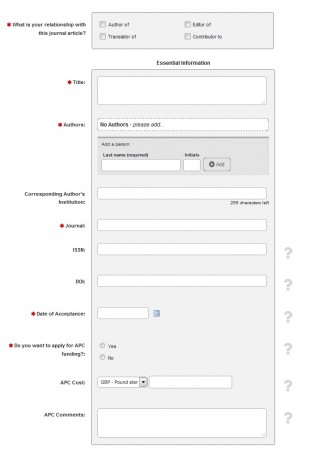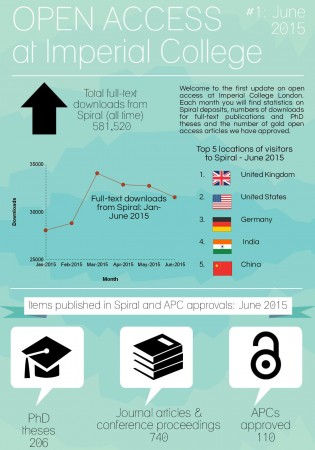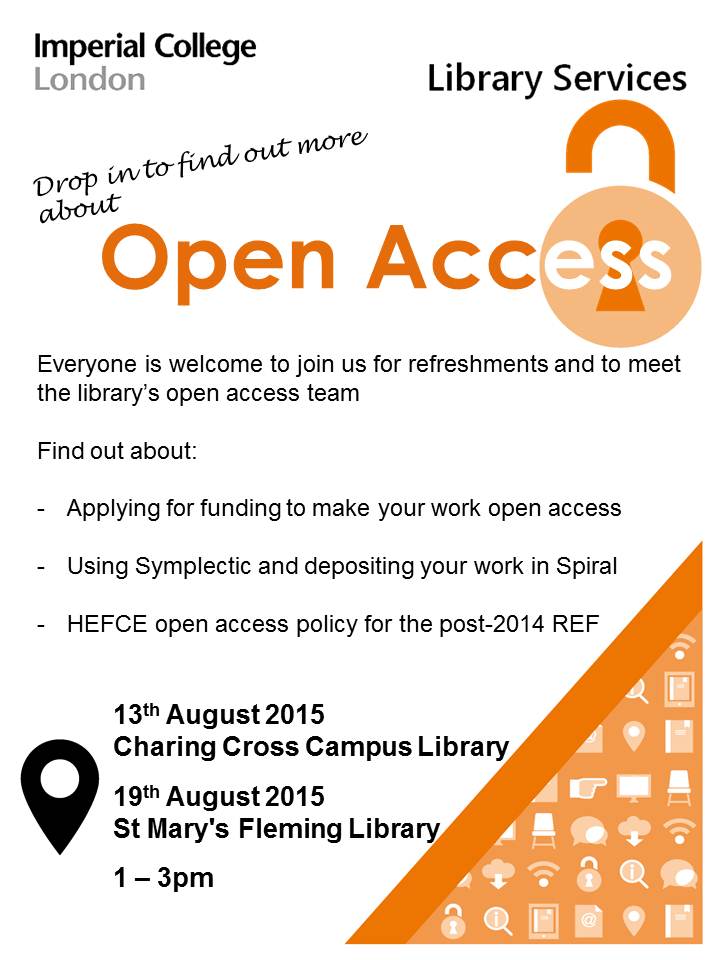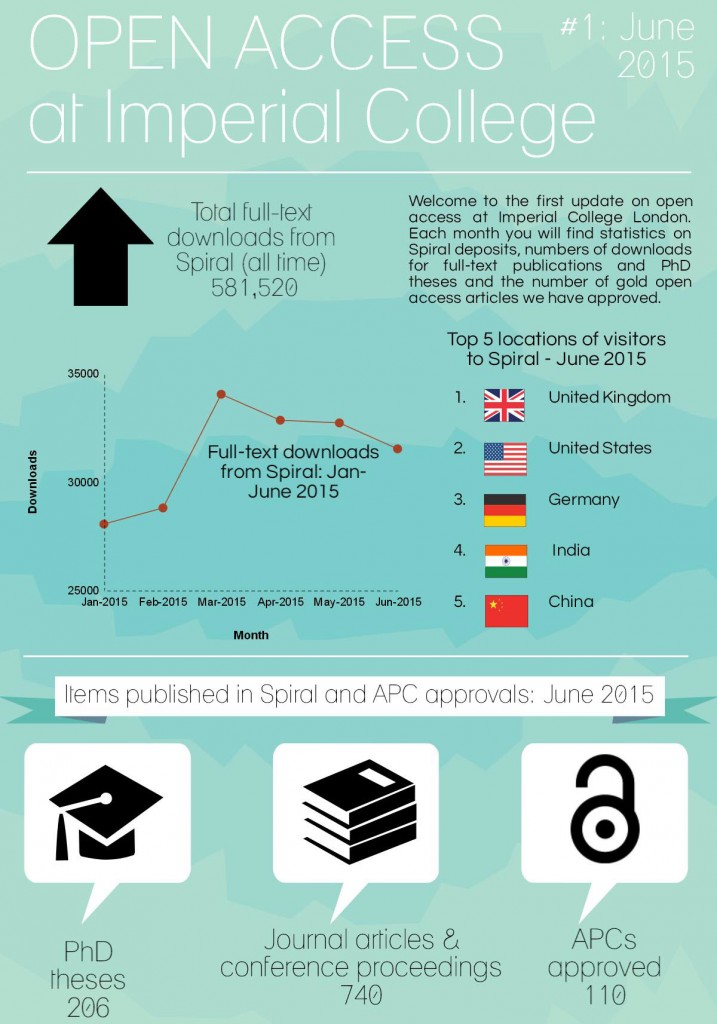When you come at it for the first time, open access looks pretty complicated. Funder policies, institutional policies, publisher policies, different flavours of OA including ‘green’, ‘gold’, ‘libre’ and ‘gratis’ and a whole new language with mystifying terms like ‘hybrid journal’, ‘article processing charge’ and ‘author accepted manuscript’ await. Even librarians sometimes struggle to understand journal policies, or what certain licensing conditions actually mean.
It was perhaps for this reason that, when we started the College open access project, academics gave us a clear mission: a one button solution to open access.
We haven’t quite achieved that yet, but since May we are running a new workflow that reduces the complexity to one sentence: ‘When you have a paper accepted, deposit the peer-reviewed manuscript – we do the rest, no matter what type of open access.’
The workflow is based on two ideas:
- Ask authors for the minimum information required.
- Offer authors a single publications workflow that covers green and gold OA as well information required for funder reporting.
The frontend for this workflow is Symplectic Elements, the system used by our academics to manage their scholarly outputs. We have worked with the vendor to deliver an OA workflow that kicks in on acceptance for publication, and then we customised the system to interface with ASK OA, our in-house APC management system.
On acceptance for publication, authors add minimal metadata and the manuscript to Elements, link the article to relevant grants and if they want the College to pay an open access charge they simply tick a box. Colleagues in the Library’s open access team then check the submission, set necessary embargoes and make the output available through Spiral, the College repository. If payment is requested, the data is automatically transferred to ASK OA, the cloud-based, workflow-driven system that we launched last year. Through that process, authors receive a purchase order number to send to their publisher. When the College receives the electronic invoice, our finance system matches the PO and the payment process starts. No author interaction needed.
Above you see a screenshot of the information we require from authors. In addition, they deposit the manuscript (or share a link if it was already deposited in an external repository) and link the output to relevant grants. That allows us to charge costs for open access publishing to the correct funders and, once funder systems are ready, will enable the College to automate funder reporting on research outputs. If you want to see a demonstration, check out this video guide produced by the College Library:
https://www.youtube.com/watch?v=9GIdjSQGLNc&rel=0&showinfo=0
The feedback we had from academics has been positive so far, and the numbers show that as well:
While the workflow is working well so far, we are still far away from what I would consider the ideal scenario. There are still enough journals with difficult and unhelpful policies, and no university workflow will be able to fix that. Publishers being unable to issue correct invoices is another issue. We also have the problem to reliably match the metadata entered on acceptance with the metadata for the published output. Publishers could help by issuing authors with a DOI on acceptance.
Even better, publishers could feed publication metadata into systems like CrossRef on the date of acceptance. If the metadata had funder, licence and embargo information attached and a link to the manuscript, then open access would indeed become a one-click-problem. Authors enter their data on submission, and following acceptance it automatically travels through all relevant systems, until it ends up in an institutional repository. There would be no additional effort for authors, and admin overhead would be reduced greatly. The components to enable this already exist, for example the author identifier ORCID that was rolled out across the College last year.
We are still working towards the goal of a “one button” solution for open access with our partners. Until then the message remains: deposit the manuscript on acceptance, we do the rest.




